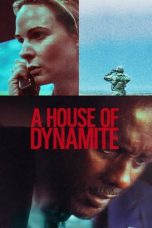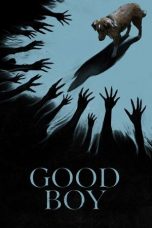Shoot the Piano Player (1960) Movie Review: A Noir Classic with a Twist
Introduction: A Unique Blend of Genres
Shoot the Piano Player (1960), directed by François Truffaut, is a film that stands out in the French New Wave movement for its unique blend of genres and its innovative storytelling. Based on David Goodis’s novel Down There, this film combines elements of film noir, comedy, and romance, offering a distinctive cinematic experience. With a screenplay co-written by Truffaut and based on a novel that explores themes of crime and redemption, Shoot the Piano Player remains a celebrated classic in the world of cinema.
In this review, we will explore what makes Shoot the Piano Player a standout film, examining its narrative structure, performances, and visual style. We will also provide information on where to watch the film online, especially for viewers in the United States.
Plot Overview: A Melancholic Journey Through Crime and Redemption
The film follows Charles Koller (Charles Aznavour), a once-prominent concert pianist who now lives a quiet and troubled life as a bar pianist. His mundane existence is disrupted when his estranged brother, Eddy (Albert Rémy), and Eddy’s wife, Mado (Marie Dubois), get entangled with a group of dangerous criminals. When the gang comes looking for Eddy, Charles finds himself reluctantly drawn back into a world of crime and violence that he had tried to escape.
As Charles navigates the dangerous situation, he forms a romantic connection with a young woman named Léna (Claude Jade), which adds another layer of complexity to his already troubled life. The film explores Charles’s struggle to protect those he loves while dealing with his own demons and the consequences of his past choices.
Cinematic Excellence: Direction, Acting, and Visual Style
François Truffaut’s direction in Shoot the Piano Player is both inventive and reflective of the French New Wave’s experimental approach. Truffaut’s use of genre conventions is notable for its subversion and playfulness. The film combines elements of film noir—such as crime, moral ambiguity, and suspense—with a light-hearted tone and comedic moments, creating a unique and engaging cinematic experience.
Charles Aznavour’s performance as Charles Koller is central to the film’s success. His portrayal of the troubled pianist is both nuanced and deeply affecting, capturing the character’s inner turmoil and vulnerability. The supporting cast, including Albert Rémy and Marie Dubois, adds depth to the film’s narrative, with strong performances that complement Aznavour’s lead.
The visual style of Shoot the Piano Player is characterized by its innovative use of cinematography and editing. Truffaut and his cinematographer, Raoul Coutard, employ a mix of stylish compositions and naturalistic shots, reflecting the film’s blend of genres. The use of music, particularly the piano score performed by Aznavour, plays a significant role in setting the film’s tone and enhancing its emotional impact.
Themes of Crime, Redemption, and the Human Condition
Shoot the Piano Player delves into themes of crime and redemption, exploring the moral complexities faced by its characters. Charles Koller’s journey is one of redemption, as he grapples with his past and the choices that have led him to his current predicament. The film examines how individuals are shaped by their experiences and how they navigate the consequences of their actions.
The theme of redemption is further explored through Charles’s relationship with Léna, which offers him a chance to find solace and meaning amid the chaos of his life. Their connection provides a glimmer of hope and highlights the film’s exploration of personal transformation and the possibility of change.
Additionally, the film’s blend of comedy and drama reflects the complexities of the human condition. Truffaut’s use of humor and light-hearted moments serves to balance the darker aspects of the story, creating a multi-faceted portrayal of the characters’ experiences.
Cultural Impact and Reception
Shoot the Piano Player is considered a seminal work of the French New Wave and remains influential in the realm of cinema. The film’s innovative approach to genre conventions and its blend of humor and noir elements have been widely praised by critics and scholars. Truffaut’s direction and Aznavour’s performance are particularly noted for their contribution to the film’s enduring appeal.
The film’s impact extends beyond its original release, continuing to be celebrated for its originality and artistic merit. Shoot the Piano Player has been the subject of numerous retrospectives and scholarly discussions, cementing its place as a classic in the history of film.
Where to Watch “Shoot the Piano Player” Online
If you’re interested in watching Shoot the Piano Player, there are several options for streaming, rental, or purchase available in the United States:
1. Streaming Services:
- The Criterion Channel: Shoot the Piano Player is available on The Criterion Channel, which offers a curated selection of classic and international films. Subscriptions start at $10.99 per month, providing access to a rich library of cinematic treasures.
- Hulu: Depending on licensing agreements, Shoot the Piano Player may be available for streaming on Hulu. With subscription plans starting at $7.99 per month, Hulu offers a diverse range of films and TV shows.
2. Rental and Purchase Services:
- Apple iTunes: You can rent Shoot the Piano Player for $3.99 or purchase it for $14.99 on Apple iTunes. This option provides high-definition streaming and compatibility with various devices.
- Google Play Movies & TV: Google Play offers rental for $3.99 and purchase for $14.99. The platform is accessible on multiple devices, ensuring convenience for viewers.
- Vudu: Vudu provides rental options starting at $2.99 and purchase for $12.99. The film is available in HDX quality for an enhanced viewing experience.
Conclusion: A Masterpiece of Genre Innovation
Shoot the Piano Player is a remarkable film that exemplifies François Truffaut’s innovative approach to filmmaking. Its blend of film noir, comedy, and romance creates a unique and compelling narrative that continues to captivate audiences. With strong performances, inventive direction, and a distinctive visual style, the film stands as a testament to the creative possibilities of cinema.
With various streaming and rental options available, accessing Shoot the Piano Player online is straightforward and convenient. Whether revisiting this classic or discovering it for the first time, the film offers a rich and rewarding experience that showcases the artistry and innovation of the French New Wave.
















